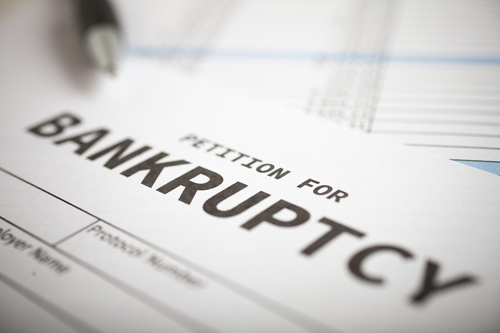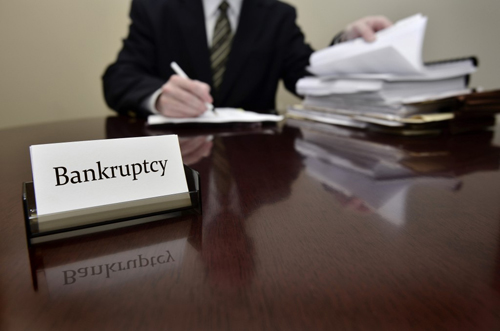Why File a Chapter 13 Bankruptcy in Lieu of a Chapter 7 Bankruptcy
A Chapter 7 Bankruptcy, also known as liquidation, provides discharge of most unsecured debts, i.e. credit cards, medical bills, personal loans, under Bankruptcy protection. In approximately 95% of cases, Debtors do not have assets above the federal or state allowed limits and therefore there are no distributions to any Creditors. Therefore, in most Chapter 7 cases, discharges are issued which relieve Debtors of these unsecured debts. Most cases only last 3 to 4 months. When the debt is discharged, the debt is no longer legally owed. If you need help filing for Chapter 7 or Chapter 13 bankruptcy in Pennsylvania, call a Bucks County bankruptcy lawyer at Young, Marr, Mallis & Associates for a free consultation today.
Unlike a Chapter 7 bankruptcy, Chapter 13 is a form of a repayment plan lasting generally 3-5 years. An important part of evaluating a potential client’s circumstances is to make a determination as to which form of Bankruptcy is appropriate. Oftentimes, while a Chapter 7 Bankruptcy is less expensive, less involved, and less time consuming, in certain circumstances, it will not accomplish the Debtor’s needs. The following are examples of where Chapter 7 may not be possible or appropriate:
You Do Not Qualify for a Chapter 7 Bankruptcy
There are certain circumstances where Debtors do not qualify for a Chapter 7 Bankruptcy. In 2005, Congress passed the Bankruptcy Protection Act of 2005 to provide an objective standard to determine whether a Debtor qualifies for a Chapter 7 Bankruptcy. Under pre-2005 Bankruptcy law, a Debtor could file a Chapter 7 Bankruptcy and there was no objective criteria to determine whether a Debtor was appropriate based on income, expenses, household size, etc. There was considerable discretion in the process allowing for a Chapter 7 filing absent U.S. Trustee objection. However, after the means test was created under the Bankruptcy Protection Act of 2005, there were objective standards to determine whether the Debtor qualified based upon household income and household size for the state in which the Debtor resided. Excluded from the means test is certain income such as Social Security Disability, Social Security retirement or Supplemental Security Income. Therefore, after 2005, some Debtors who would have been eligible pre-2005 bankruptcy changes, may no longer be eligible to file a Chapter 7 and may have to repay a percentage of unsecured debt in a Chapter 13 Bankruptcy.
There are other reasons a Debtor may additionally not qualify for a Chapter 13 bankruptcy. Under the Bankruptcy Code, if the Debtor previously filed a Chapter 7 Bankruptcy within 8 years prior to a new filing, he/she cannot elect to file a Chapter 7 bankruptcy, rather they are limited to either a Chapter 11 or 13. Furthermore, if a Debtor has property above the allowable exemptions under State and Federal Bankruptcy laws, that property would need to be liquidated in a Chapter 7 Bankruptcy. However, in a Chapter 13 Bankruptcy, you may retain the property by paying back the amount of non-exempt equity to Creditors who file Proof of Claims (certifications evidencing the debt). Oftentimes, this repayment is far less than the total debt owed by the Chapter 13 filer. In this situation, a Chapter 13 Bankruptcy filer would have 3 to 5 years to pay back the total amount that would be considered non-exempt.
You Have a Co-Debtor on a Personal Debt
If you choose to file a Chapter 7 Bankruptcy and you have a co-debtor on a personal debt, he/she will remain obligated despite the filing. In contrast, if you file a Chapter 13 Bankruptcy, your co-debtor will have the protection of the filing as long as you stay current on your Chapter 13 Plan and complete the Plan through discharge.
You Have Mortgage Arrears, Tax Arrears, or Non-Dischargeable Debts
In a Chapter 13 Bankruptcy, you have an opportunity to pay back all mortgage arrears in a 60 month Plan. This allows the Debtor who becomes delinquent on his mortgage to not have to repay the arrears in one lump sum, but rather have the flexibility of keeping current on his payments while repaying the amount he is delinquent over an extended period of time. This is especially appropriate for a Debtor who had income reduction due to job loss, illness, etc. The Debtor may also have the opportunity to repay other debts such as tax obligations, domestic support arrearages or other debts which cannot be discharged.
Chapter 13 Bankruptcy Mortgage Stripdowns
A Stripdown is a concept unique to a Chapter 13 versus a Chapter 7 Debtor. In a Chapter 13 Bankruptcy, some homeowner’s may be able to totally eliminate or make unsecured a second mortgage or home equity loan. This is referred to as a “Stripdown” or “Lien Stripping” and is not available in a Chapter 7 setting. In order to qualify for a Stripdown, the value of your home must exceed your first mortgage such that there is no equity in your home to support a second lien. A Stripdown must usually be accomplished through an Adversarial proceeding and in most cases, you must a have a formal appraisal showing that the current value of your home is exceeded by your first mortgage. The appraisal must show that the fair market value of your home is such that if it was liquidated that there would not be ANY excess money after paying the first mortgage to contribute towards the second lien. Example – the balance of your first mortgage is $100,000. You have a second mortgage or home equity loan of $60,000. If the fair market value of the home is determined to be $99,999, you would be entitled to “strip” away or make the second lien fully unsecured as there is no equity to support the second loan. In the alternative, using the same numbers for the balances of your first and second mortgage, if the fair market value of the home is determined to be worth $100,001, you could not strip off the second mortgage because it is at least partially secured by your equity in your home, i.e. the fair market value of your home exceeds the amount owed on your first lien. Thus, if the value of your home has sufficient equity if liquidated to pay off your first mortgage and still have available funds to contribute towards the second lien, it is partially secured and cannot be removed in Bankruptcy.
Automobile Financing in Chapter 13 Bankruptcy
In some instances, the Debtor has fallen behind on a car loan, but wishes to retain the vehicle. In that instance, if you cannot become current or make alternative arrangements with the lender, the most viable alternative might be to retain the vehicle in a Chapter 13 filing. In a Chapter 13 Plan, the Debtor will have the ability to repay the loan over up to 60 month Plan. Furthermore, if you are upside down on your vehicle, i.e. you owe more than it is worth, a Chapter 13 Bankruptcy may allow you to reduce the principal as well as the interest to pay only fair value of the vehicle plus reasonable interest in the Chapter 13 Plan. This is known as a cramdown. However, in the 2005 Bankruptcy changes, the Congress placed certain restrictions on the allowance on cramdowns. If you wish to cramdown your car loan, you must have purchased the car at least 910 days prior to your filing.
Investment Property Cramdowns
Similar to the car scenario, a Debtor who owes more on an investment property than the property is worth may be allowed to cramdown and pay back only the fair market value. However, from a pragmatic standpoint, this often times is unrealistic for a Debtor as he is only given up to 5 years for purposes of repaying the loan and therefore despite the reduction, the payments are often unrealistic.
Philadelphia + Bucks County Bankruptcy Lawyers Offering Free Consultations
Many times, at first review, a Chapter 7 may seem like the more attractive alternative to a Debtor. However, it is sometimes not feasible to file a Chapter 7 due to income or a prior Chapter 7 filing within the 8 year period. Furthermore, a more comprehensive review may reveal that Chapter 13 Bankruptcy better serves the Debtor’s needs. It is therefore imperative that Debtor and his counsel thoroughly evaluate the advantages and disadvantages of a Chapter 7 versus Chapter 13 Bankruptcy to determine the appropriateness for that individual Debtor. For your free consultation with a Philadelphia bankruptcy attorney at Young, Marr, Mallis & Associates, call today.






























